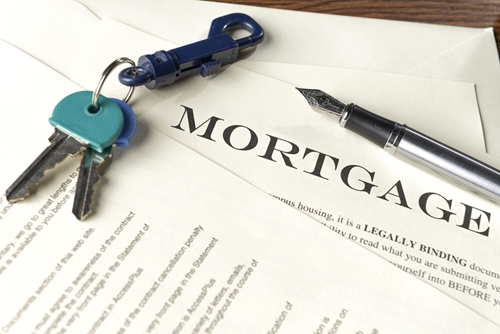 Since the recent outbreak of COVID-19 there has been a lot of talk about new mortgage forbearance programs. What exactly is mortgage loan forbearance and should you apply for this? Forbearance is not a forgiveness of your loan obligation, but more an extension of your loan term.
Since the recent outbreak of COVID-19 there has been a lot of talk about new mortgage forbearance programs. What exactly is mortgage loan forbearance and should you apply for this? Forbearance is not a forgiveness of your loan obligation, but more an extension of your loan term.
Under the Federal Coronavirus CARES ACT, a mortgage forbearance is an option available for homeowners who cannot afford to make their monthly mortgage payments due to the economic impact of COVID-19. If you have lost some or all of your income, then the forbearance program with your existing mortgage lender may be the right choice for you.
Note: It’s important to speak directly with your mortgage lender (who you make your payments to) and ask them for the details of their program. It’s important to educate yourself as some of the programs might not be what you think.
Under the forbearance program, most lenders are letting you skip up to 3 payments with no questions asked. The 4th month is where it gets is a little sticky. Let’s look at this example. If your mortgage payment is $2,000 a month, you call and go into forbearance. The next 3 payments you do not have to make until month 4. So now in month 4 you owe the previous $2,000 a month x 3 months = $6,000 plus month number 4’s payment of $2,000. So you owe $8,000 now.
If you do not have it they will likely work out a payment plan with you to spread that out over 12 months. So $6,000 / 12 = $500 additional payment per month. So now your payment went from $2,000 a month to $2,500 per month. Keep in mind since you skipped 3 payments your escrow account will be short when your taxes and insurance are due. So your payment could go up even higher to make up for that as well.
The healthiest long term financial option is to continue making your monthly mortgage payments if possible. Forbearance comes with risk and should only be used in times of absolute necessity. It is not a free pass and homeowners are not guaranteed forbearance, it must be granted. Payments do not get added to the end of your loan term. All payments are due upon closure of the forbearance term when payments are reinstated.
It’s also important to know that forbearance could negatively affect your credit score. This in return could impact your ability to refinance or purchase a new home in the future.
 The next option they will offer you is a loan modification, and this is something you will have to qualify for. To qualify for a modification you typically have to show proof of your income, and proof you do not make enough to make the existing payment, but enough income to make a reasonable payment. If you make too little for it to make sense your modification could be turned down.
The next option they will offer you is a loan modification, and this is something you will have to qualify for. To qualify for a modification you typically have to show proof of your income, and proof you do not make enough to make the existing payment, but enough income to make a reasonable payment. If you make too little for it to make sense your modification could be turned down.
What is a good alternative? If you have not lost your income, speak with one of our partners about refinancing your home loan. You may be able to skip one month mortgage payment. Also, if you have enough equity you may also be able to take cash out to consolidate some bills, or put some money away in the bank.
NOTE: Cash-out refinance limits have been recently reduced. FHA and Conventional loans are currently limited to 80% loan to value. VA loans are limited to 90% and USDA does not permit cash-out refi transactions. No matter what loan type you have now, we can help provide some valuable insight before you make the decision to go into forbearance. Keep in mind that refinancing is not an option for loans currently in forbearance.
It’s no secret that interest rates have been hovering near all-time low levels in recent weeks. Contact us 7 days a week with questions or to learn more. Call the number above, or just submit the Info Request Form on this page.
